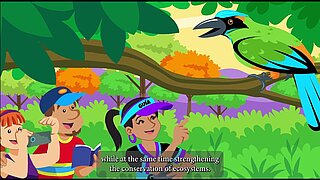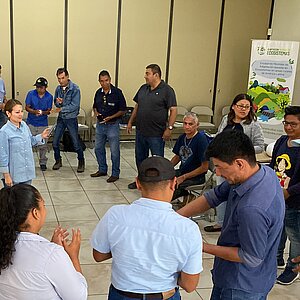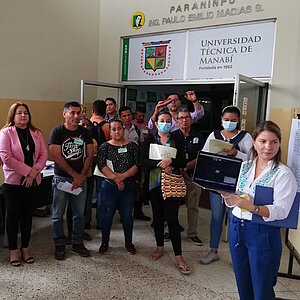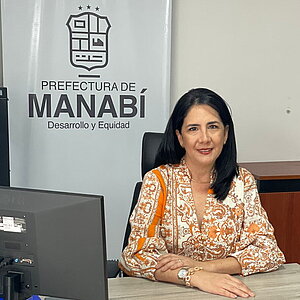Adaptation to climate change through sustainable cultivation of bamboo
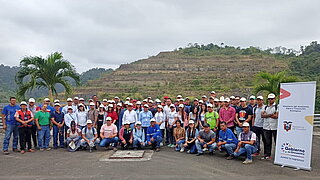
Producers, authorities and academia representatives from Manabí were part of a capacity building day for ecosystem restoration using guadua sugarcane or bamboo cane.
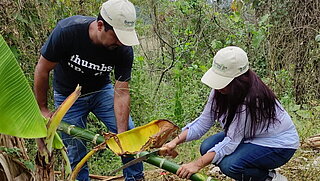
The IKI-supported project ‘Scaling-up Ecosystem-based Adaptation (EbA) Measures in rural Latin America’ organised the first edition of the Bambutón 2022, which aimed to reaffirm the commitment and empowerment of local stakeholders in the province of Manabí, Ecuador to adapt to the effects of climate change through the sustainable management of bamboo.
The event was attended by more than 100 people, including authorities from the Ministry of Environment, Water and Ecological Transition of Ecuador (MAATE), the Ministry of Agriculture and Livestock, the Provincial Government of Manabí, the Cantonal Government of Chone, representatives of associations of sugarcane producers, the Technical University of Manabí (Chone extension) and the Catholic University (Manabí extension). The activity was also well attended by young volunteers from Junior Chamber International (JCI).
The participants met at the land located at the Rio Grande dam, which is part of the strategic infrastructure for the province’s water resources, and jointly planted more than 500 segments of guadua sugarcane in an area of approximately 3 hectares. This is a method of reforestation that can be highly replicable in the canton of Chone.
The versatile Gramineae species (Guadua angustifolia Kunth) does not depend on the rainy season and its water demand is reduced, making it a restoration option that will bring effective results in the short term, mainly in water recharge areas and in areas where vegetation cover is scarce or in the process of degradation.
Mr Quinto Alcívar, one of the owners of the land where the planting took place, believes that this method of reforestation is vital to improve productive systems and to recover degraded and deforested areas. "We thank the organisations involved for their contribution to the conservation of ecosystems that help to fight climate change, this motivates us to continue restoring and conserving the forests", he said.
This was echoed by Dr Yeriel Zambrano, Zonal Director 4 MAATE, who congratulated the population for their commitment to the implementation of the EbA LAC programme in Chone, especially the cocoa, corn, citrus and livestock producers who are committed to sustainable agriculture.
This first edition of the Bambutón was intended to position the importance of developing valuable spaces for the active exchange of knowledge, which can be replicated to encourage the creation and strengthening of capacities in the sustainable use and promotion of crops –in this case guadua cane – as alternatives for the protection and restoration of the area's ecosystems.
The link has been copied to the clipboard
Contact
IKI Office
Zukunft – Umwelt – Gesellschaft (ZUG) gGmbH
Stresemannstraße 69-71
10963 Berlin





